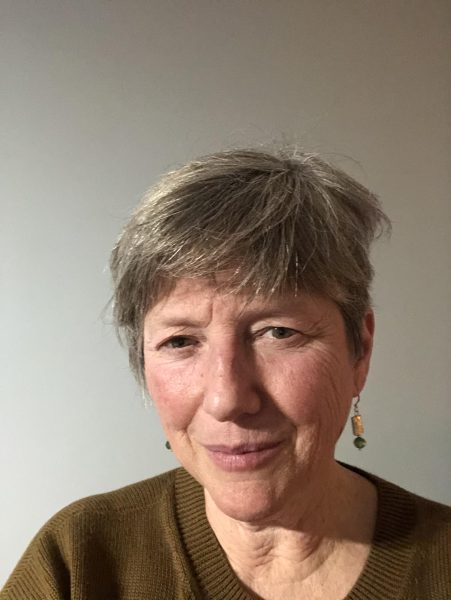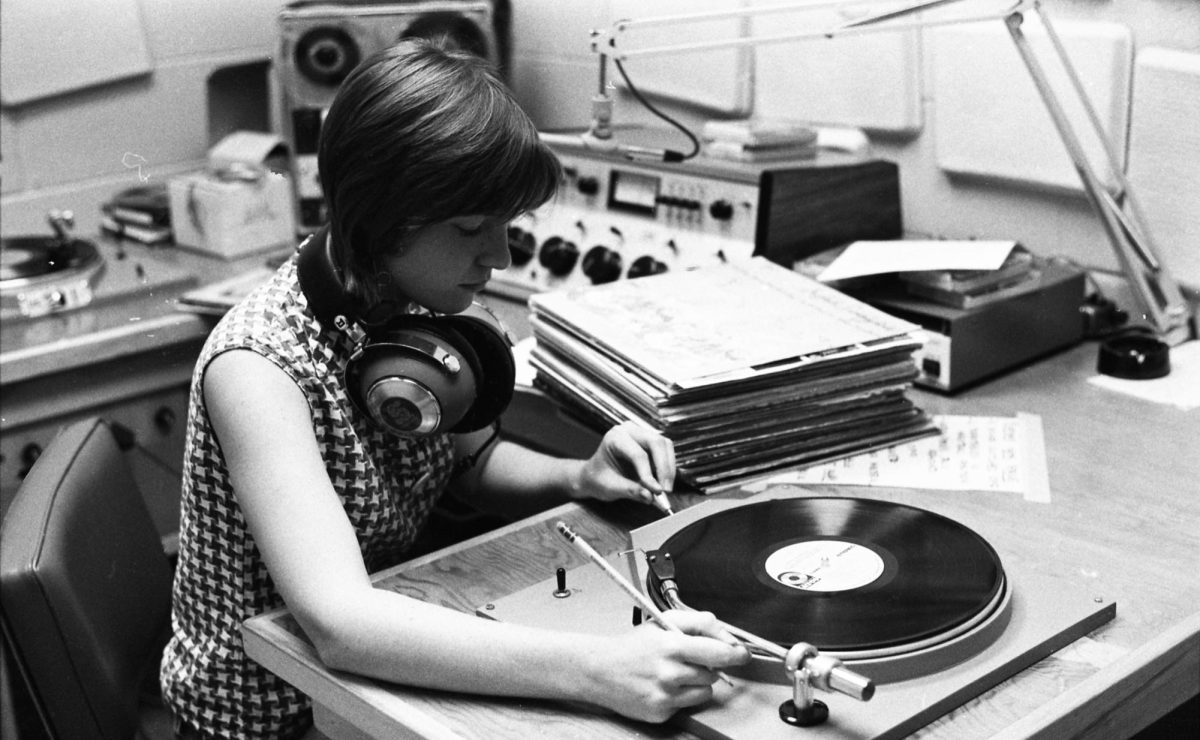Late in the evening of October 14th, 1975, Carole Boughter sat alone in the quiet space of the newly built Bloomsburg State College (BSC) radio station. In front of her stood a mic, and off to her side was a stack of vinyl records that included some of her favorite musical artists, such as Tower of Power, the Grateful Dead, and Stanley Clark, and would make up the music that she would play that night. A date that saw Carole Boughter become the campus’s first radio DJ.
Meet the DJ
As an English and Art History major, there was a lot about BSC that Boughter found inviting. “There were a lot of new things that were evolving.”
Boughter talked about what specifically drew her to the radio station when she heard that one would be established on campus. “I always loved music; my family loves music; there have been many things I have done associated with music. Doing the radio station was one of the early things I was able to participate in.”
However, it wasn’t just the radio station, that caught her attention. “I fell in love with all these extra things we could do. The radio station or running the campus activities board.”
When the Kehr Union building was first built, the station was housed within it. Using phone lines, the station functioned as a closed-circuit facility. This meant that phone lines were the only way for the station to be picked up in residence halls and other university buildings.
The station also operated as an AM station, and along with the control board, it was outfitted with a turntable, a reel-to-reel machine, and some microphones.
According to Boughter, “We brought a lot of our own records to the station or we borrowed them from other people.” She described the station, stating it wasn’t large. She recalled it as “not too small but it wasn’t a very large room.”
Forged intimacy with the audience
Boughter would play her music late into the night for nearly two years at the little Kehr Union station. She viewed the station as a tranquil place, even with all the music blasting from the turn tables. This gave her a sense that she was a member of a private club.
She would play her music, occasionally delivering commentary to anyone who happened to be listening, although it was impossible to know how many. She could also feel a personal connection to the station with the occasional caller who would compliment her voice or her music selection that evening. “There was an intimacy that was forged as a result of people sharing music.”
It was that intimacy that brought on some of her favorite aspects of her tenure at the station, saying, “I really enjoyed that people decided to listen, and that they would call you and personally tell you why a song or string or songs had a personal meaning to them.”
Boughter wasn’t the only student operating the station at the time. In her own words, “She just happened to be the first on-air.” Other prominent students present, when the station went live, included names such as station manager Rick Eckrote, whom Boughter described as “easygoing.”
Along with Eckrote, there was continuity director Peggy Moran and program director Joe Daley. However, Boughter could remember that there were, in total, anywhere from eight to ten members of the station.
Beyond the airwaves
Thinking back about her role as Bloomsburg’s first DJ, she said, “I think it’s a little monumental.” Before stating, “I was lucky enough to be in firsts a lot of times,” such as one of the first people to run a festival on campus known as “The Jamboree.”

Boughter would eventually graduate from BSC in 1978. After graduation, she joined the Bloomsburg Theater Ensemble, where she stayed for two years. During her time there, she founded a music co-op. She would then move to Philadelphia, where she took on a role as the director of the Folklife Center, working to bring many styles of song, dance, and art to the local community.
Reflecting on the impact her tenure at the station had, she said, “It provided me with some confidence in my ability to introduce individuals to meaningful content.”

















Barbara (Griffin)Paul • Mar 31, 2024 at 2:50 PM
Carole always had such a generosity of spirit, passion for giving, living doing, creating, assisting and making a difference in the lives of others. She had and has a huge amount of energy, integrity and passion for life. Above all she knew how to be a friend, and make a difference… Thanks for the memories Carole!!